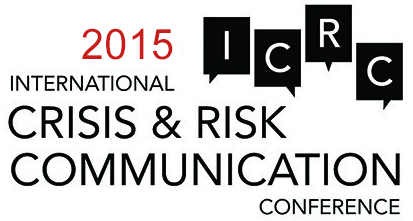
Professor
Lund University
Sweden
Mats Heide, Ph.D., is professor in strategic communication at Lund University, Campus Helsingborg, and he is Deputy head of the Department of Strategic Communication. His research interests focus on strategic communication in general, and more specific on crisis communication, change communication and organizational learning. Heide has co-authored several text-books (in Swedish) within his research interests, and his work is published in International Journal of strategic communication, Corporate Communications: An international journal and Journal of Contingencies and Crisis Communication, and in anthologies such as Social theory on public relations (Routledge 2009), The handbook of crisis communication (Blackwell 2010), Handbook of crisis management (Springer Verlag 2013), The Routledge handbook of strategic communication (Routledge 2013), Public relations: Critical concepts in media and cultural studies (Routledge 2013), Encyclopedia of public relations (Sage 2013) and Encyclopedia of quality and the service economy (Sage 2014).
2014
Breakout Session: Crisis Communication in a Late Modern Context: A Cultural Approach*
Research in crisis communication has a rather short history but is in fast development (Frandsen and Johansen 2011). That said it is a fact that the majority of earlier research in the field has had a limited scope, mainly focusing corporate image restoration strategies. The role of social media has been highlighted during last years, but basically from the same perspective as before. Simplified, effective crisis communication has been viewed as fast transmission of information between organizational senders and the public, or as image restoration strategies when an organization gets questioned. Crisis management research, where crisis communications is one important area, has accordingly mainly focused on functional-managerial aspects, e.g. prevention, decision-making and planning (Boin et al 2008). But during the last decade the political-strategic and global dimension of crisis management has developed this field.
The dominant paradigm in traditional crisis communication research is linked to functionalism, rationalism and modernity. Gilpin and Murphy (2008) state that this paradigm lead researchers and practitioners to focus on preparation, monitoring, control measures, plans and dissemination of mass information. It is indeed important to prepare, monitor and plan for potential crises, but:
“(…) succesful crisis management is not guaranteed by scientific planning and prescriptive decision making. Rather the nature of the organization, the crisis, and the environment exert important influences on outcomes, influences that even the most skilled professional cannot fully control but can learn to work with adeptly” (Gilpin & Murphy, 2008, p. 5).
In this presentation we focus on contextual conditions for crisis communications and argue for a late modern and cultural approach. Traditional crisis communication research is based on the premise that society is a homogenous system and that it is possible to find one strategy or one model that may solve all crisis communication problems. Audience research (incl. focusing co-workers) has been put aside while most research has focused on organizational management sender’s views, media choice and content. This is obviously problematic in late modern society where crises are characterized by their potential to move across different cultural, organizational, geographic, spatial and political settings. The late modern traits such as increased mobility, insecurity, reflexivity and immediate access to information, are both possibilities and problems for contemporary crisis communications.
Analyzing crises from a cultural perspective is one possibility for developing new knowledge and that is what this presentation puts in center of interest. In the presentation Falkheimer and Heide explain this further. In the first part the state of research is discussed. Then the concept of culture, linked to crisis, is discussed. Finally a summary and suggestions for practice is given. Empirical examples from their research will be used.
*Jesper Falkheimer and Mats Heide co-authored this paper. Jesper Falkheimer and Mats Heide will be presenting.


